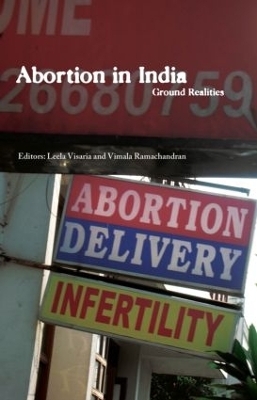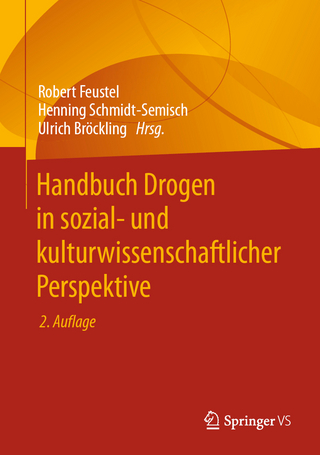
Abortion in India
Routledge India (Verlag)
978-0-415-42412-7 (ISBN)
India was a pioneer in legalizing induced abortion, or Medical Termination of Pregnancy (MTP) in 1971. Yet, after three decades, morbidity and mortality due to unsafe abortion remain a serious problem. There is little public debate on the issue despite several national campaigns on safe motherhood. Instead, discussion on abortion has mainly centred around declining sex ratio, sex-selective abortion, and the proliferation of abortion clinics in urban areas. Adding to the problem is that abortion continues to be a sensitive, private matter, often with ethical/moral/religious connotations that sets it apart from other reproductive health-seeking behaviour.
This book fills a gap in our understanding of the ground realities with respect to induced abortion in India to create an evidence-based body of knowledge. Using both quantitative and qualitative research methods, the case studies show why and under what circumstances women seek abortion and the quality of services available to them. They also explore inter-generational differences in attitudes and practices, the perceptions and selection of providers, female-selective abortion, and informal abortion practitioners. Among other issues, the contributors show that strong preference for sons, availability of modern techniques for diagnostic tests, widespread acceptance of the small family norm, and heavy reliance on female sterilisation as the primary method of contraception lead women to abort unwanted pregnancies.
A book that goes beyond the smokescreen of data and regulations to unravel the human story behind elective abortion, it will be of interest to those studying health, public policy, and gender, apart from the general reader.
Leela Visaria is Trustee, HealthWatch Trust, New Delhi, India. She holds a PhD from Princeton University, and was Professor (since 1987) and Director (from 2004-6) at the Gujarat Institute of Development Research, Ahmedabad. She has served as Coordinator of HealthWatch since 1996. Her research interests include historical demography, health, education and demographic transition. Her articles have appeared in several scholarly journals. She co-authored Contraceptive Use and Fertility, and has co-edited Maternal Education and Child Survival. Vimala Ramachandran is also Trustee, HealthWatch Trust, New Delhi, and Partner, Educational Resource Unit, New Delhi, India. She is Partner, educational Resource Unit has extensive experience in qualitiative research, policy and programme development and process documentation. She specialises in planning, design and management of social sector programmes in India, with specific focus on integrated child development, primary education and women’s education. She has published extensively on primary education and girls’ education. Among her recent publications are Bridging the Gap between Intention and Action: Girl’s and Women’s Education in South Asia; Hierarchies of Access: Gender and Social Equity in Primary Education.
Introduction: Emerging Issues in Abortion Use and Practice 1. Abortion Care in the Urban Slums in Ahmedabad Alka Barua 2. Women, Work and Abortion Practice: Tamil Nadu S. Anandhi 3. Abortion in Peri-Urban Communities: Married Women Speak Anjali Radkar 4. Sex Selection in Gujarat and Haryana: Some Empirical Evidence Leela Visaria 5. Abortion in Rural Pune: An Ethnographic Exploration Sudha Morankar, et al. 6. Post-Abortion Care in the Public Health System M. Prakasamma 7. The Choice of Induced Abortion: Rural Tamil Nadu P. Balasubramanian and T.K. Sundari Ravindran 8. Pregnancy Wastage Among the Poor in Karnataka: Socio-Economic and Medical Correlates K. Susheela and K. Nagaraj 9. Informal Providers of Abortion Services Bela Ganatra and Leela Visaria
| Erscheint lt. Verlag | 7.3.2007 |
|---|---|
| Verlagsort | London |
| Sprache | englisch |
| Maße | 138 x 216 mm |
| Gewicht | 589 g |
| Themenwelt | Sozialwissenschaften ► Soziologie |
| ISBN-10 | 0-415-42412-7 / 0415424127 |
| ISBN-13 | 978-0-415-42412-7 / 9780415424127 |
| Zustand | Neuware |
| Haben Sie eine Frage zum Produkt? |
aus dem Bereich


